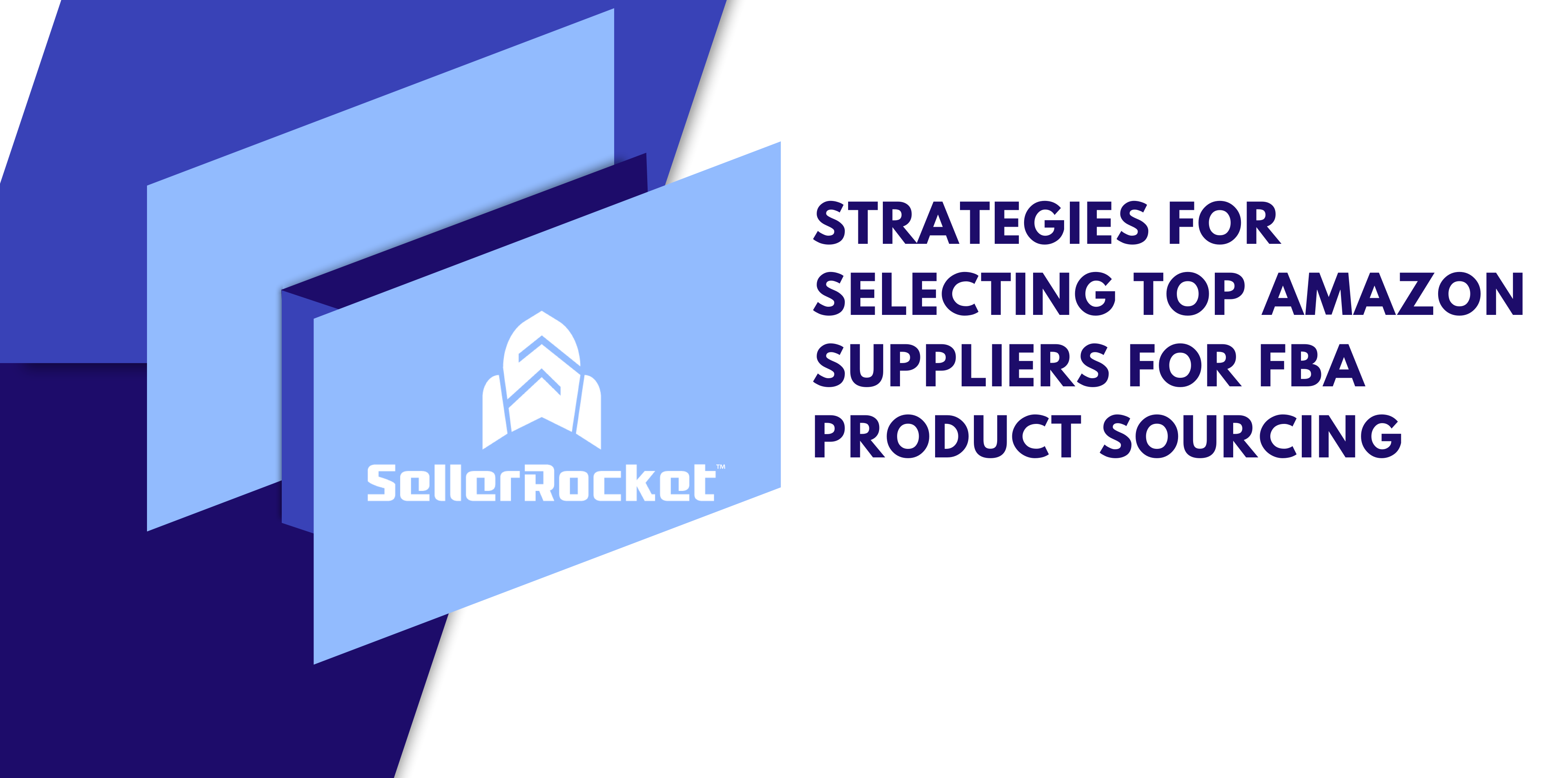
In the early stages of establishing your eCommerce store or Amazon FBA business, product sourcing and deciding which Amazon suppliers to use is a critical step. A good supplier is reliable, guarantees high-quality products, ships promptly, manages returns efficiently, and comes recommended by other sellers. Conversely, poor suppliers can derail your business, causing financial losses and harming your reputation.
Finding the right supplier is essential to protect your bottom line and ensure sustainable growth for your brand. When evaluating Amazon suppliers, there are many factors to consider, such as determining the type of supplier that best fits your business, identifying reliable partners, and forming partnerships that help minimize Amazon seller fees. Let’s explore how to find the right Amazon supplier for your business.
Contents [hide]
Amazon FBA sourcing involves four main types of suppliers, each with unique benefits and drawbacks. Understanding these differences is key to selecting the supplier that aligns best with your store’s needs.
Wholesale suppliers purchase products in bulk from manufacturers and resell them to Amazon store owners. While wholesale suppliers often charge more per item than manufacturers, they require lower minimum order volumes, which can reduce upfront investment costs. This makes them a practical choice for businesses just starting out. However, higher per-item costs can lead to lower profit margins.
Dropshipping suppliers represent a fast-growing segment of the market, offering a model where suppliers manage warehousing, inventory, and order fulfillment. This setup allows sellers to launch stores with minimal upfront costs and operational expenses. Dropshipping provides flexibility, as sellers can quickly adjust their offerings based on product performance. However, this model has downsides, including lower profit margins, limited control over fulfillment, and dependency on external suppliers for inventory availability.
Liquidators, or asset recovery specialists, purchase overstocked, clearance, or returned items in bulk at discounted rates. They then resell these products to Amazon sellers in bundles. Liquidators offer competitive pricing, making it possible to achieve good profit margins. However, their unpredictability and lack of product variety can pose challenges. Additionally, sellers often cannot inspect products beforehand, which increases the risk of receiving damaged items.
Manufacturers are the preferred choice for larger retailers because they offer bulk discounts and consistent quality assurance. While they provide excellent margins and the option to customize products, manufacturers typically have high minimum order requirements, which can be a barrier for smaller businesses. Additionally, they may prioritize established companies over newer sellers.
Selecting the right Amazon supplier is crucial to maintaining your store’s reputation and maximizing profits. Flexibility and ease during the sourcing process are essential. Flexible suppliers allow sellers to adapt to changing trends and customer demands. It is important to understand return policies, delivery processes, and minimum order requirements when researching potential suppliers. Fast delivery, efficient shipment methods, and the ability to quickly adjust inventory are also critical factors.
Keeping the cost of goods sold (CoGS) low is another key priority. CoGS includes all product-related fees and represents a significant portion of expenses for an Amazon store. Choosing suppliers with competitive pricing leaves room for adequate profit margins after accounting for marketing, distribution, and other operational costs.
Scalability is an important consideration. While your store’s initial sales volume may be modest, your supplier must be capable of handling increased demand as your business grows. Unfulfilled orders can damage your reputation, so it’s crucial to choose a supplier who can scale alongside your business.
Creating a detailed spreadsheet to compare suppliers simplifies the decision-making process. Include information on product pricing, quantity discounts, minimum order volumes, shipping durations, and production lead times. Evaluate expedited shipping costs, payment schedules, and private labeling opportunities. Documenting these details helps identify suppliers that align with your goals and provide the best overall value.
Before finalizing any partnership, thoroughly vet potential suppliers. Confirm that they hold liability insurance and necessary product certifications to ensure credibility. Ask for references from other sellers, as recommendations provide valuable insights into the supplier’s reliability and service quality. Performing a credit check on suppliers can help determine their financial stability and reduce the risk of disruptions.
Tracking and shipping are additional areas to assess. Reliable suppliers provide robust package tracking systems, ensuring transparency and enabling sellers to address potential delays. It’s also beneficial to understand which shipping carriers they use, as carrier choice can affect costs and delivery times. Ensuring suppliers’ return policies are favorable is another important step to safeguard your business against unsellable or damaged inventory.
Sourcing suppliers for your Amazon FBA business may require effort, but there are trusted channels to explore. Search engines like Google are a powerful starting point. Use specific keyword phrases to find suppliers tailored to your industry. Trade publications are another valuable resource, offering recommendations from reputable sources. Attending trade shows, either in-person or virtually, provides opportunities to connect with suppliers directly and evaluate their offerings firsthand.
Building partnerships with reliable suppliers is foundational to the success of your Amazon FBA business. By understanding the various types of suppliers, carefully evaluating their capabilities, and conducting thorough due diligence, you can position your brand for sustainable growth and profitability.
© 2025 SellerRocket TM . All Rights Reserved.
Get our latest updates directly to your inbox.
Only the best in eCommerce and affiliate news, tips and tricks.
